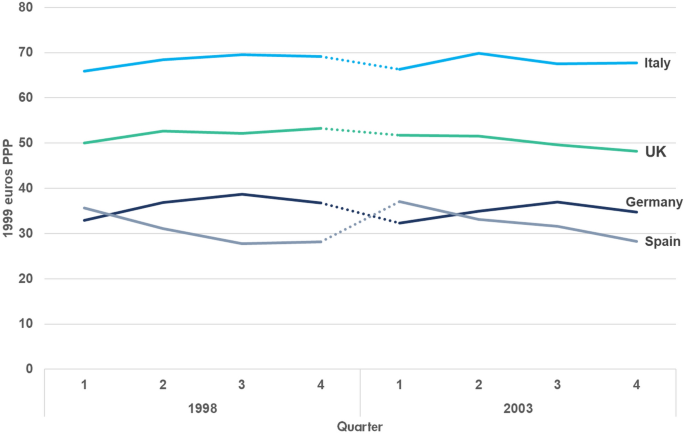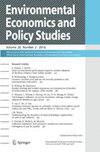The German Environmental Tax Reform: a difference-in-differences analysis of its impacts in European comparison
IF 2.3
Q2 ECONOMICS
引用次数: 0
Abstract
Abstract In 1998, the red-green Schröder government implemented the Environmental Tax Reform (ETR), raising taxes on petrol, diesel, natural gas and heating oil and introducing a new duty on electricity in Germany. At the same time, it cut non-wage labour costs by reducing public pension contributions. The goal was to achieve Germany’s Kyoto Protocol emissions targets and to reduce a level of unemployment unprecedented since World War II while avoiding the burden on the public budget through revenue recycling. Employing microdata from household budget surveys of 1998 and 2003, this article analyses whether increased duties on motor fuels and electricity lead to a substantial reduction in households’ consumption of these goods. Considering the ETR as a natural experiment, it uses the difference-in-differences approach in a European context with Germany as the treatment group and Italy, Spain and the UK as the control group. Ordinary least square regressions reveal that motor fuel demand is price inelastic, while electricity consumption increased despite the substantial rise in prices. Quartile regressions show that the effect of the motor fuel tax is slightly higher at the bottom than at the upper tail of the distribution supporting the notion that low-level consumers are more likely to find alternative substitutes.

德国环境税改革:欧洲比较影响的差异分析
1998年,红绿Schröder政府实施了环境税改革(ETR),提高了汽油、柴油、天然气和取暖油的税收,并在德国引入了新的电力税。与此同时,它通过减少公共养老金缴款来削减非工资劳动力成本。其目标是实现德国《京都议定书》(Kyoto Protocol)的排放目标,降低二战以来前所未有的失业率,同时通过收入回收避免给公共预算带来负担。本文采用1998年和2003年家庭预算调查的微观数据,分析了汽车燃料和电力关税的增加是否会导致家庭对这些商品的消费大幅减少。考虑到ETR是一项自然实验,它在欧洲背景下使用差异中的差异方法,以德国为治疗组,意大利、西班牙和英国为对照组。普通最小二乘回归显示,汽车燃料需求是价格无弹性的,而尽管价格大幅上涨,但电力消耗仍在增加。四分位数回归显示,汽车燃油税对底部的影响略高于分布的上尾,这支持了低水平消费者更有可能找到替代替代品的观点。
本文章由计算机程序翻译,如有差异,请以英文原文为准。
求助全文
约1分钟内获得全文
求助全文
来源期刊

Environmental Economics and Policy Studies
ECONOMICS-
CiteScore
4.80
自引率
0.00%
发文量
20
期刊介绍:
As the official journal of the Society for Environmental Economics and Policy Studies and the official journal of the Asian Association of Environmental and Resource Economics, it provides an international forum for debates among diverse disciplines such as environmental economics, environmental policy studies, and related fields. The main purpose of the journal is twofold: to encourage (1) integration of theoretical studies and policy studies on environmental issues and (2) interdisciplinary works of environmental economics, environmental policy studies, and related fields on environmental issues. The journal also welcomes contributions from any discipline as long as they are consistent with the above stated aims and purposes, and encourages interaction beyond the traditional schools of thought.
 求助内容:
求助内容: 应助结果提醒方式:
应助结果提醒方式:


